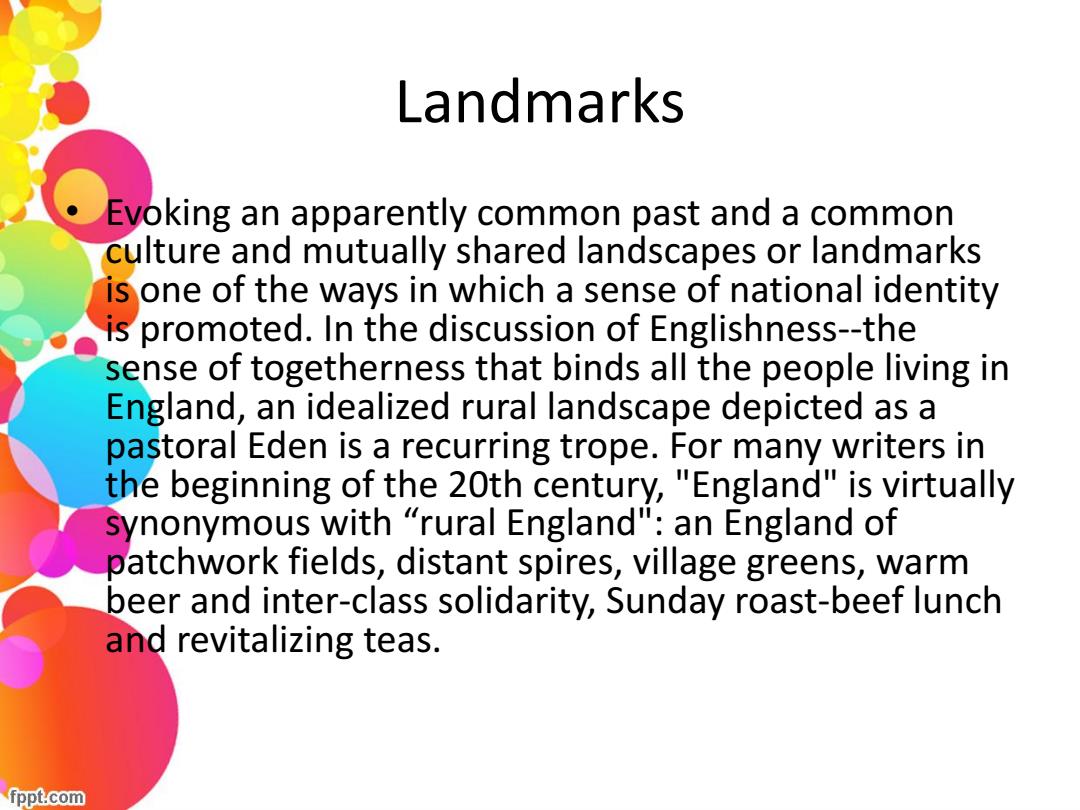
Landmarks Evoking an apparently common past and a common culture and mutually shared landscapes or landmarks is one of the ways in which a sense of national identity is promoted.In the discussion of Englishness--the sense of togetherness that binds all the people living in England,an idealized rural landscape depicted as a pastoral Eden is a recurring trope.For many writers in the beginning of the 20th century,"England"is virtually synonymous with "rural England":an England of patchwork fields,distant spires,village greens,warm beer and inter-class solidarity,Sunday roast-beef lunch and revitalizing teas. fppt.com
Landmarks • Evoking an apparently common past and a common culture and mutually shared landscapes or landmarks is one of the ways in which a sense of national identity is promoted. In the discussion of Englishness--the sense of togetherness that binds all the people living in England, an idealized rural landscape depicted as a pastoral Eden is a recurring trope. For many writers in the beginning of the 20th century, "England" is virtually synonymous with “rural England": an England of patchwork fields, distant spires, village greens, warm beer and inter-class solidarity, Sunday roast-beef lunch and revitalizing teas
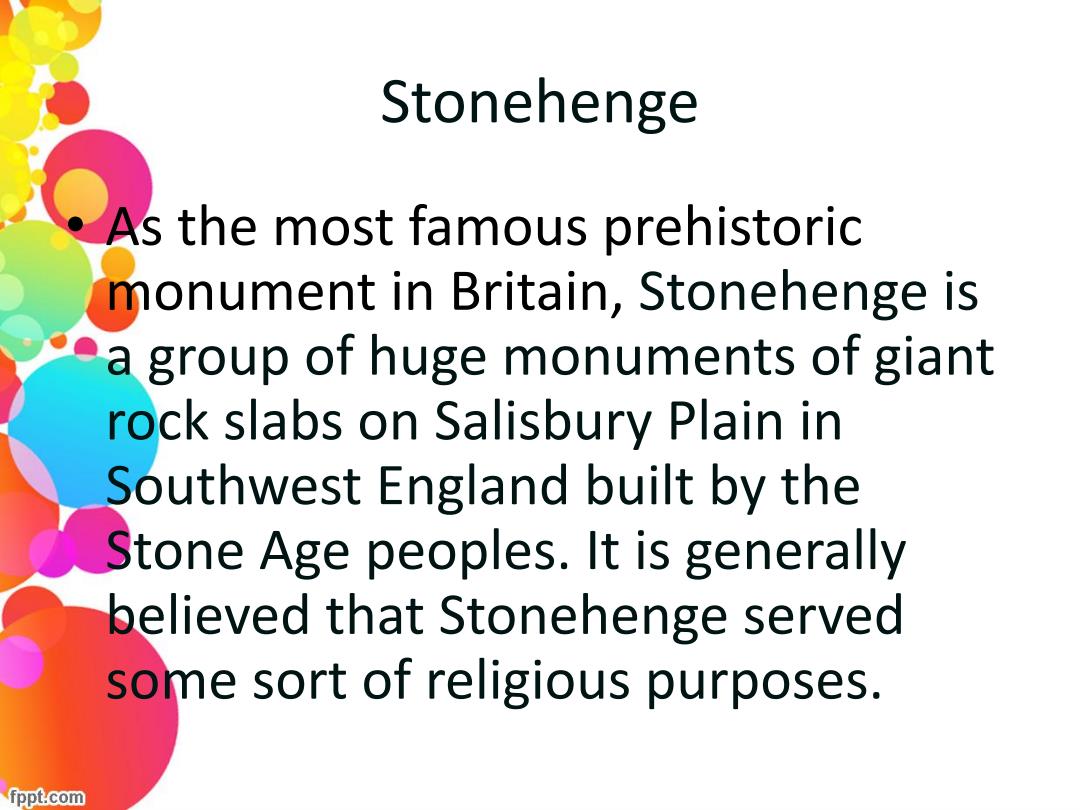
Stonehenge As the most famous prehistoric monument in Britain,Stonehenge is a group of huge monuments of giant rock slabs on Salisbury Plain in Southwest England built by the Stone Age peoples.It is generally believed that Stonehenge served some sort of religious purposes. fppt.com
Stonehenge • As the most famous prehistoric monument in Britain, Stonehenge is a group of huge monuments of giant rock slabs on Salisbury Plain in Southwest England built by the Stone Age peoples. It is generally believed that Stonehenge served some sort of religious purposes
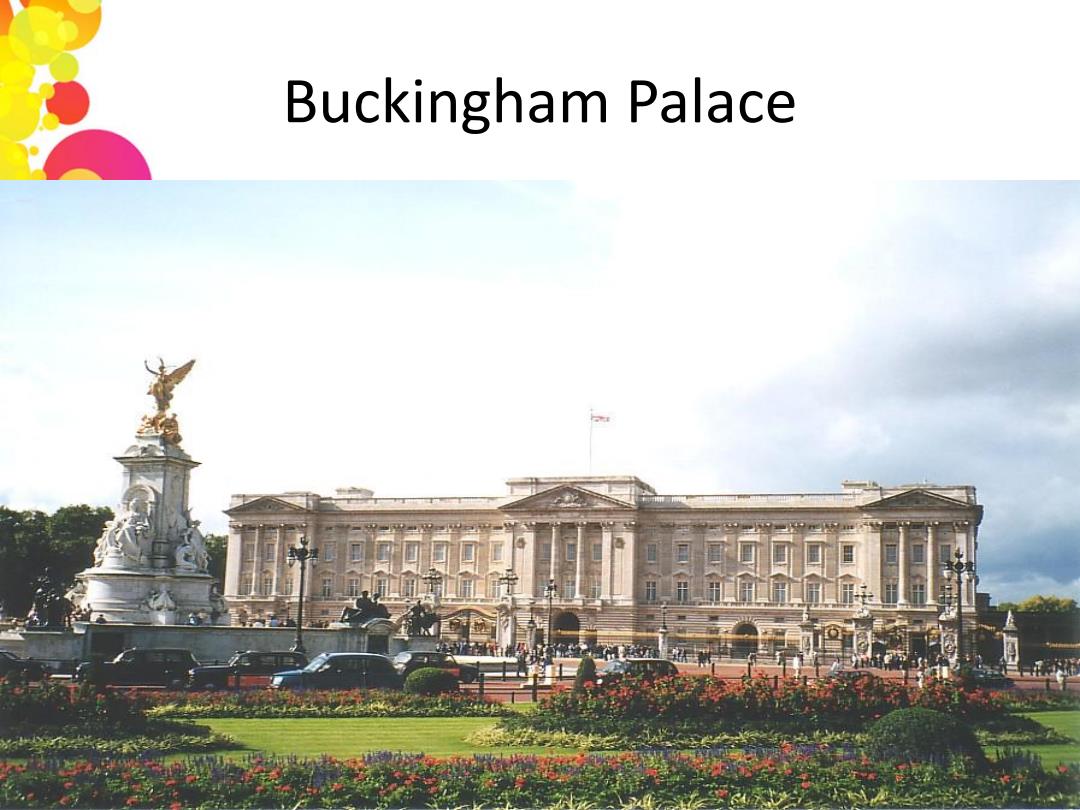
Buckingham Palace
Buckingham Palace
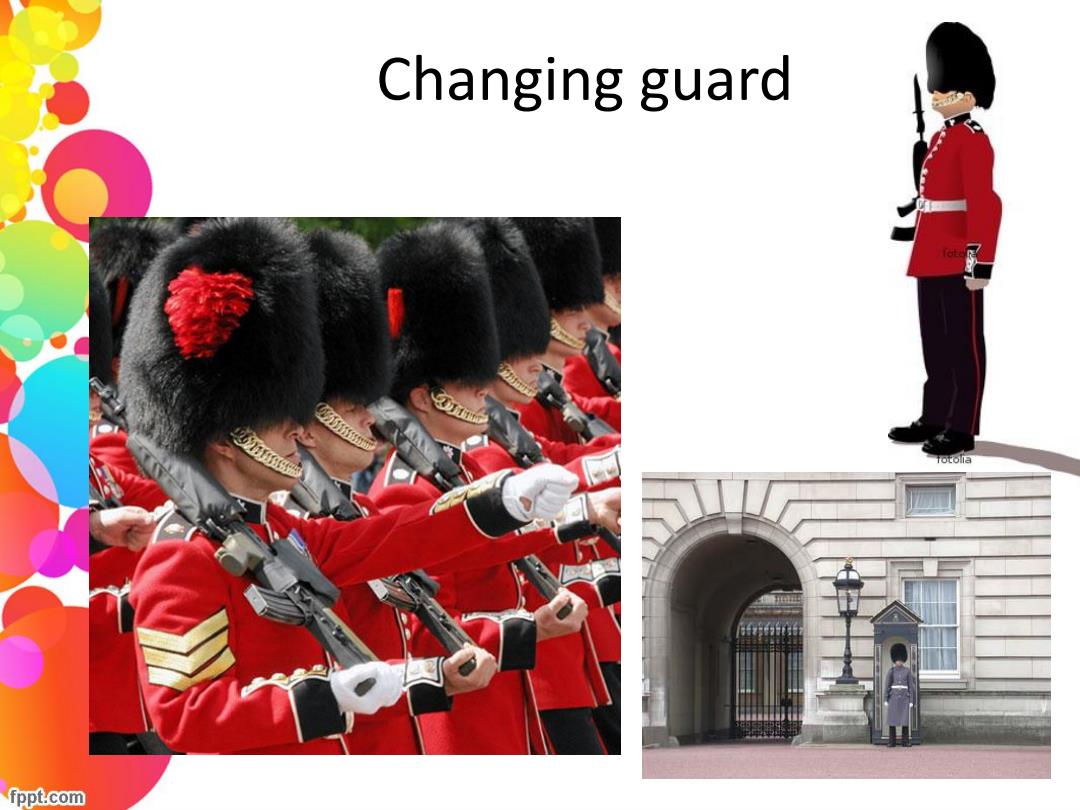
Changing guard fppt.com
Changing guard
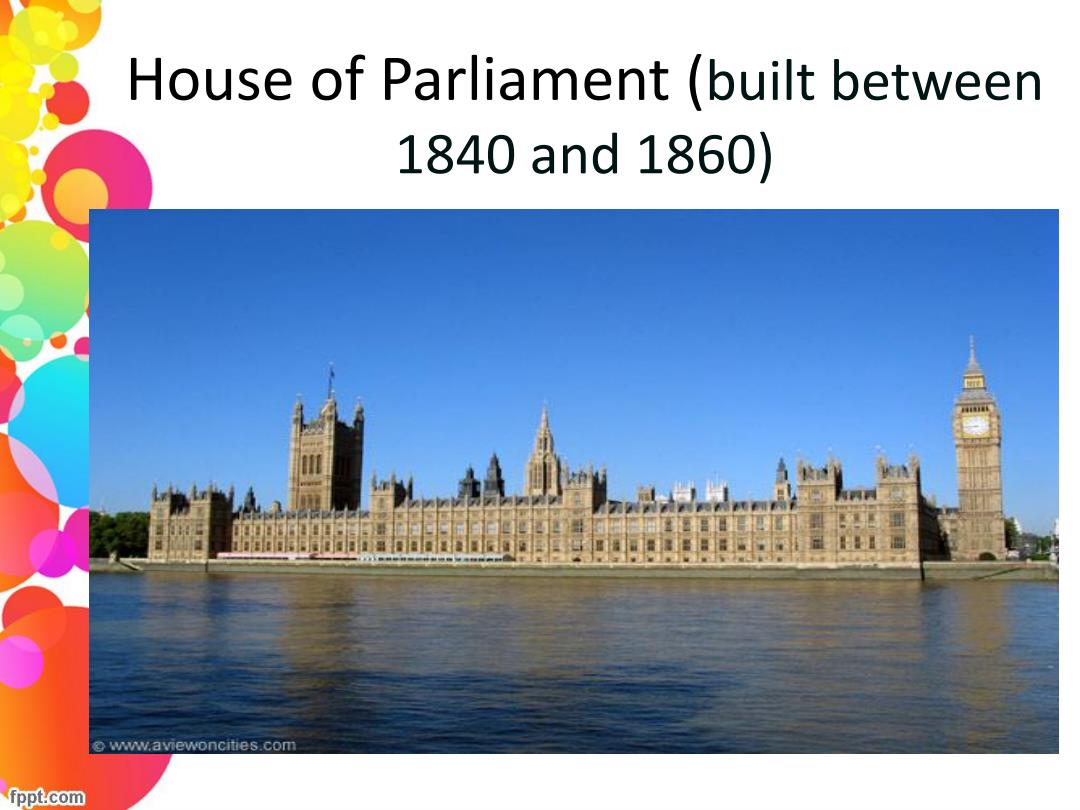
House of Parliament (built between 1840and1860) ②w,aviewonc由es.com fppt.com
House of Parliament (built between 1840 and 1860)